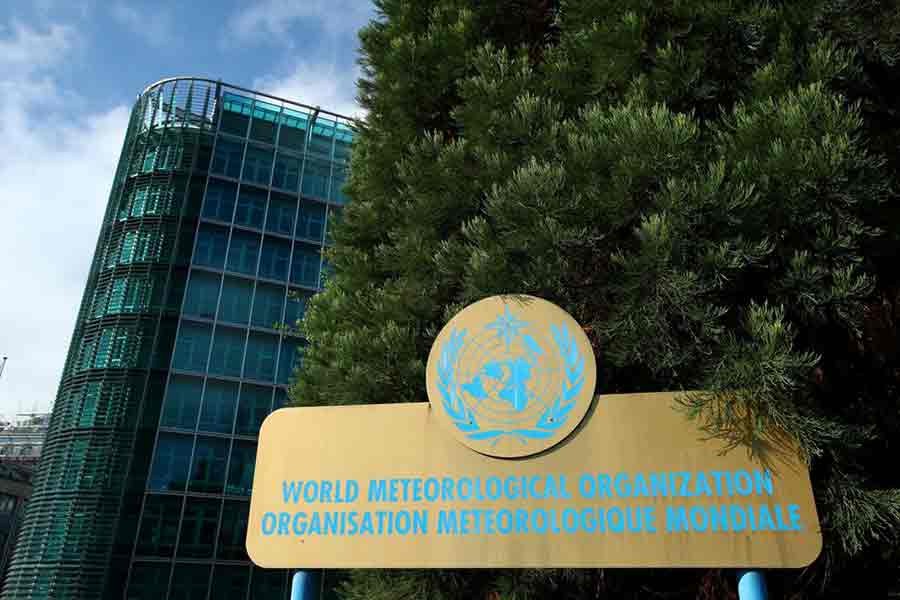The 'comprehensive review' prepared by the UN agency WMO, hopefully, hasn't included Bangladesh in its list of the UN member-countries lacking early warning systems. In its appraisal published on September 1, the World Meteorological Organisation (WMO) is focused on the mortality and economic losses from the extreme weather and water climate conditions. In spite of facing at least three cyclonic storm-warnings almost every year lately, most of them skirt Bangladesh. Those which charge towards Bangladesh coastal districts blow over the country --- weakened and spent.
Compared to the storms in the past, those hitting Bangladesh now-a-days leave relatively little destructive impact on the coastal zone. The credit for this remarkable drop in human and infrastructural casualtiesgoes to its improved multi-hazard warning system. It includes, in the main, two weather-related organisations: Bangladesh Meteorological Department and the Flood Forecasting and Warning Centre --- both in Dhaka. It was due to the absence of a full-fledged weather forecast mechanism, the then-province's coastal belt got pulverised by the 1970 super-cyclone. It left a trail of devastation including 700,000 deaths.
The WMO says these storms and floods in the 1970s set off the era of the extreme weather-prompted natural disasters. The calamitous trend continued up to 2019 (and beyond). In the last 50 years, floods, storms and heat waves have increased five times the disasters hitting mankind in the past. Apart from leaving economies in disarray, these extreme-weather assaults and fallout killed more than 2 million people and cost $3.64 trillion in total losses, the survey observes. According to WMO, 11,000 calamities have hit nations and peoples around the globe in the period of 1970-2019. Those included catastrophes like Ethiopia's 1983 drought, which the WMO terms the single-most fatal event killing 300, 000 people. The deadly cyclone which hit the erstwhile East Pakistan in 1970 could have been included in this segment of the survey. The WMO singles out the Hurricane Katrina that hit the US state of Louisiana in 2005. It inflicted losses of $163.6 billion.
As series of global summits have failed to reach a consensus on the ceiling for emission of CO2, i.e. drastic cuts in greenhouse gases, climatologists sound alarms over a raft of disasters in the near future. It's an irony that majority of thenationslove to look forward to the future summits sealing a binding agreement on CO2 emissions. Currently all eyes are fixed on the coming Glasgow climate meet. Distressing signs keep looming against an ominous backdrop. Floods have already wreaked havoc on the vast swathes of European countries, China, Japan and the USA. Those have been accompanied by wildfires, apparently amid extreme-weather conditions, in the US, Australia, and lately in Greece and Turkey. The calamitous events and the cataclysmic Indian tsunami in 2004, and a few others elsewhere, are viewed as being linked to climatic extremes. This turn of climatically volatile developments could have been averted by the improvements in early warning mechanism; in some sectors they have proved successful. But upon an overallassessment, what remains is the fact that the economic losses have been growing rapidly. These grim prospects comprise a significant part of the WMO study. This forms the gist of an elaborate projection made by WMO Secretary General Petteri Taalas. As he says, "We are going to see more climatic extreme because of climate change and this negative change in climate will continue for the coming decades."
Till the present phase of 2021, the global climate has seen a number of erratic trends, especially in the last one-and-half decades. Climate experts are unanimous in reaching the conclusion that the culprit responsible for the unpredictable behaviour of nature is global warming. Thanks to the continued rise in the occurrence of this degrading of nature as well as the losses of ecological balance, the planet Earth found itself being exposed to climatic scourges not seen before. Apart from the major deviant behaviours of nature during this period, the recent battering of New York and New Jersey by torrential rains and the Storm Ida-spawned tornados is directly linked to global warming. Overnight flash floods and a state of emergency ground New York, the largest US city and its residents, to a standstill. The extent of the catastrophes' ferocity stunned people. According to the WMO chief, costs from these extreme events rose from $175.4 billion in the 1970s to $1.38 trillion in the 2010s. During this period storms such as Harvey, Maria and Irma ripped through the US. In the cyclone-prone South and Southeast Asia, storm disasters like Urir Char (1985), Sidr (2007) and Aila (2009) played havoc with Bangladesh, and the southern coast of India. In 2008, cyclone Nargis inflicted a trail of destruction and fatalities on Myanmar.
Although in the past, Bangladesh had to pass through the spells of drought almost every 5-6 years, the natural scourge has long stopped appearing. But the country has yet to be freed of floods. They are prompted mostly by heavy rainfall upstream India. However, thanks to the preparations taken by the different relief and rehabilitation agencies, the rural people can avert a major portion of the flood fallout. It has been made possible since the accurate flood forecasts started with the overhaul of the Flood Forecasting and Warning Centre. In spite of these timely actions, people in the northern, north-eastern and central Bangladesh continue to suffer from the flood impacts.
The WMO study, however, tells the world about some of its findings which are upbeat. As it observes, the annual global disaster death toll has dropped from over 50,000 in the seventies to around 18,000 in the 2010s. It attributes this improvement to 'better planning'.


